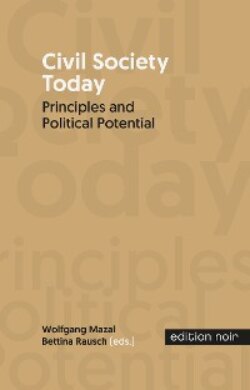Читать книгу Civl society - Группа авторов - Страница 13
(i) Individuality
ОглавлениеAs previously mentioned, the Aristotelian practical philosophy in general, and its political anthropology, have experienced both acceptance and rejection over the course of history. In modern political thought especially, many Aristotelian positions of his ethical-political symbioses were questioned for their general validity. In the course of political thought, beginning in the modern era, a greater distance was established between ethics and politics in comparison with ancient classical theory. In addition to doubts about the Aristotelian basic constant that humans are by nature community beings, criticism was also expressed of the Aristotelian “practical-political way of life”, the bios practikos kai politikos,18 and its binding necessity for the citizen.
In his philosophy, John Locke had already stressed the possibility of many different lifestyles and provided them with a new individualisation. He anchored these personal possibilities firmly on the basis of the fundamental rights to “life, liberty, and happiness”. However what is modern about the modern era is not the postulation of the “pursuit of happiness” – which Aristotle had already dealt with – but lies in two other details: first, in the definition of this pursuit of happiness as an activity that anybody – not just the free (male) citizen – can organise and determine for him- or herself, and second, all should do as they see fit. According to John Locke, all people look for happiness in the organisation of the way they lead their own lives, but they do not all look for the same kind of happiness or happiness in the same things. John Locke summarised the maxim of the modern individual, when compared with antiquity, in the following way: “Although people choose different things [in connection with the individual lifestyle], they all make the right choice.”19
Accordingly, individual life concepts cannot – or can hardly – be generalized, let alone represented in a single overall picture. John Locke’s – not entirely irony-free – criticism of the practical-political philosophy of antiquity is that it tried to do so anyway and thus had an extremely limited perspective on the conduct of human life. And so, he states that one “might have as reasonably disputed, whether the best relish were to be found in apples, plums, or nuts, and have divided themselves into sects upon it”.20
